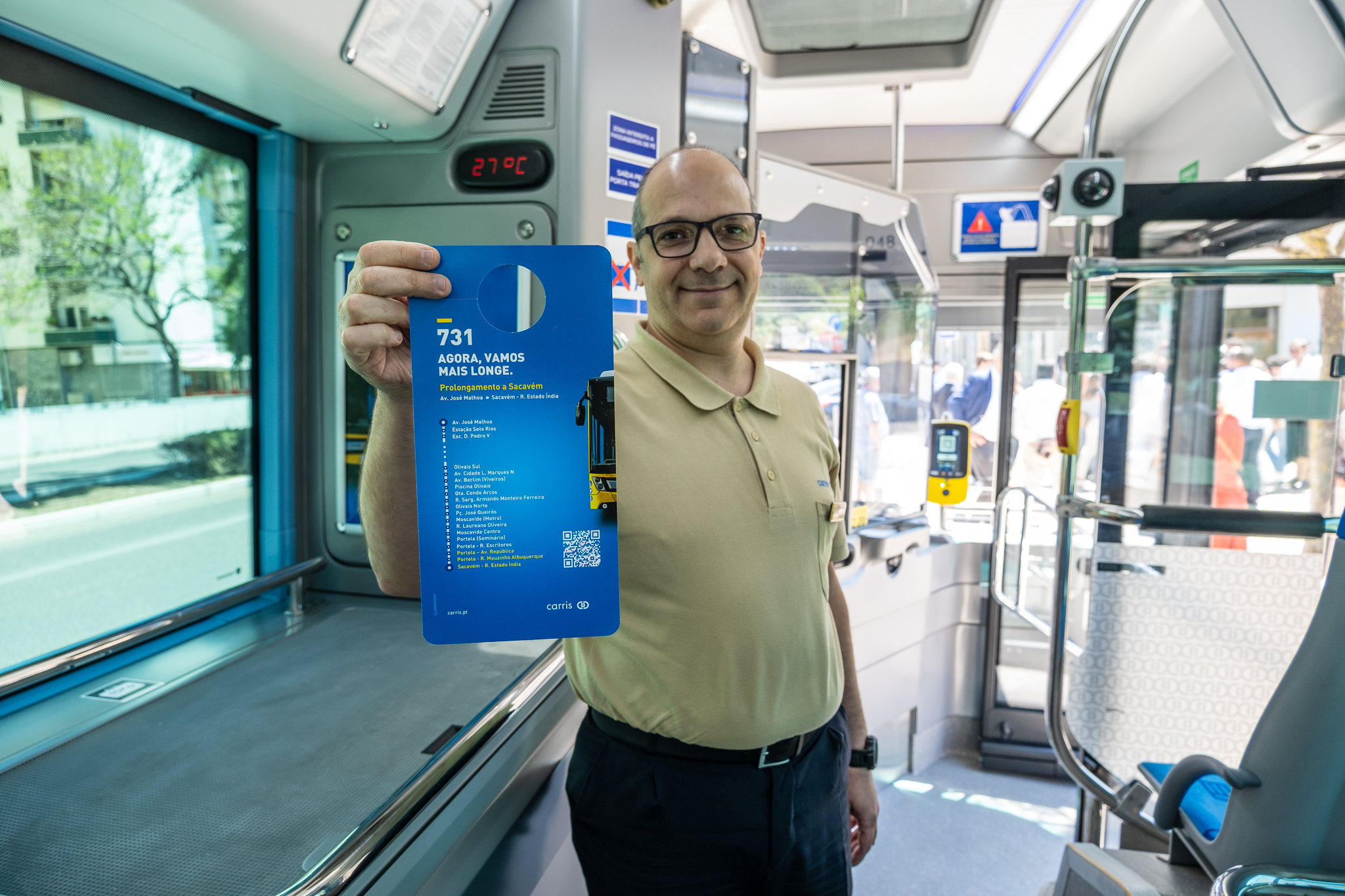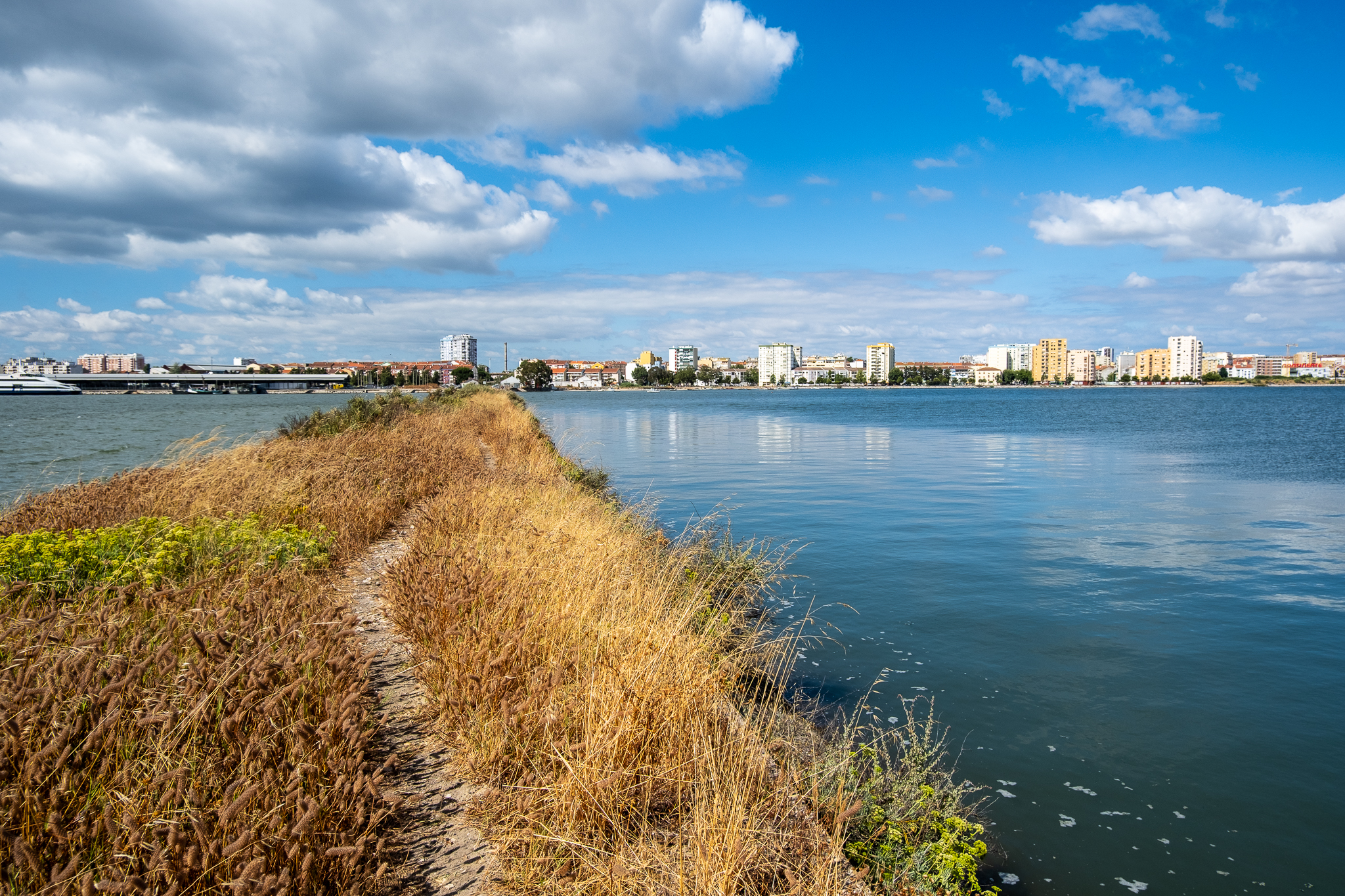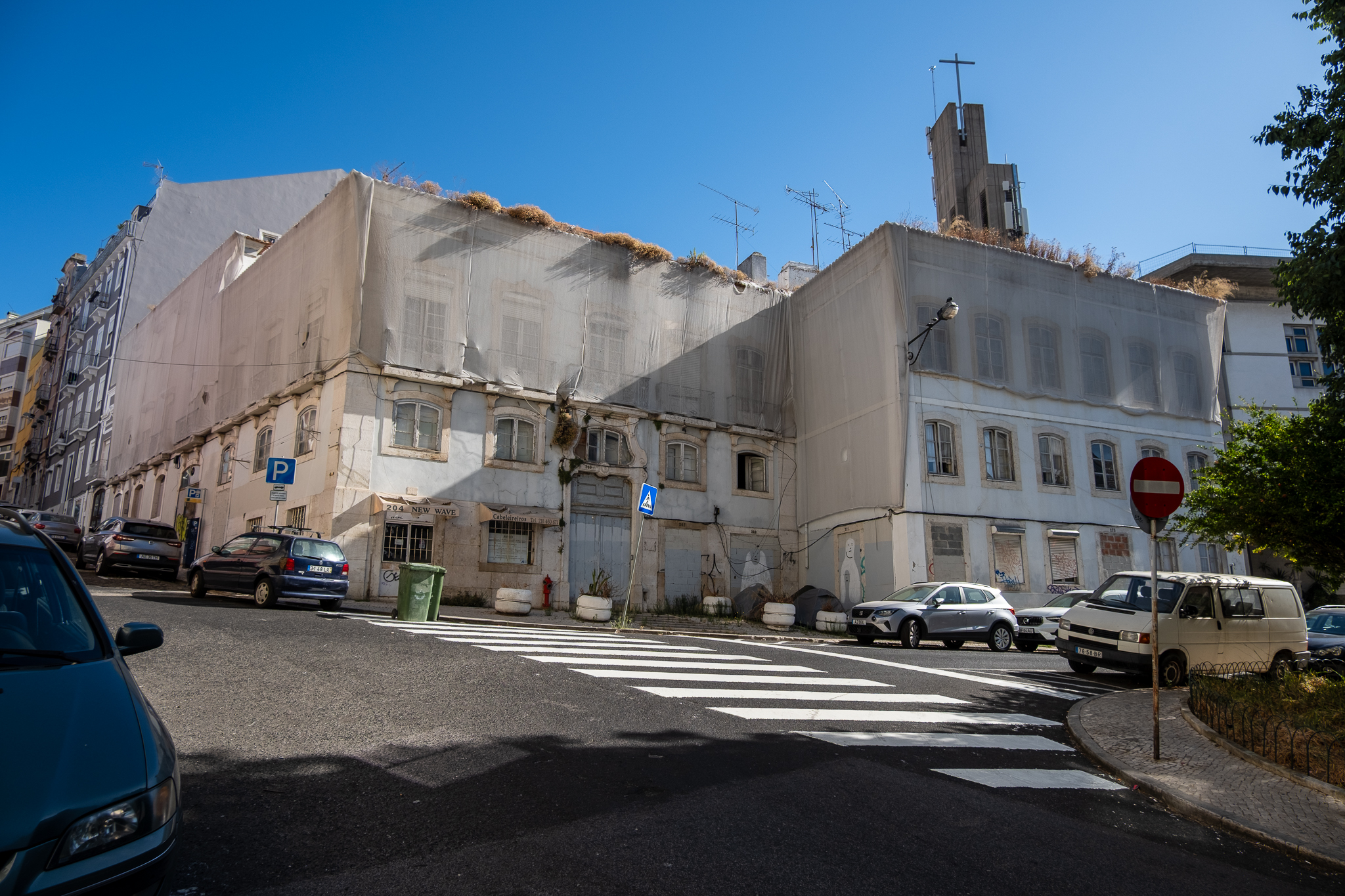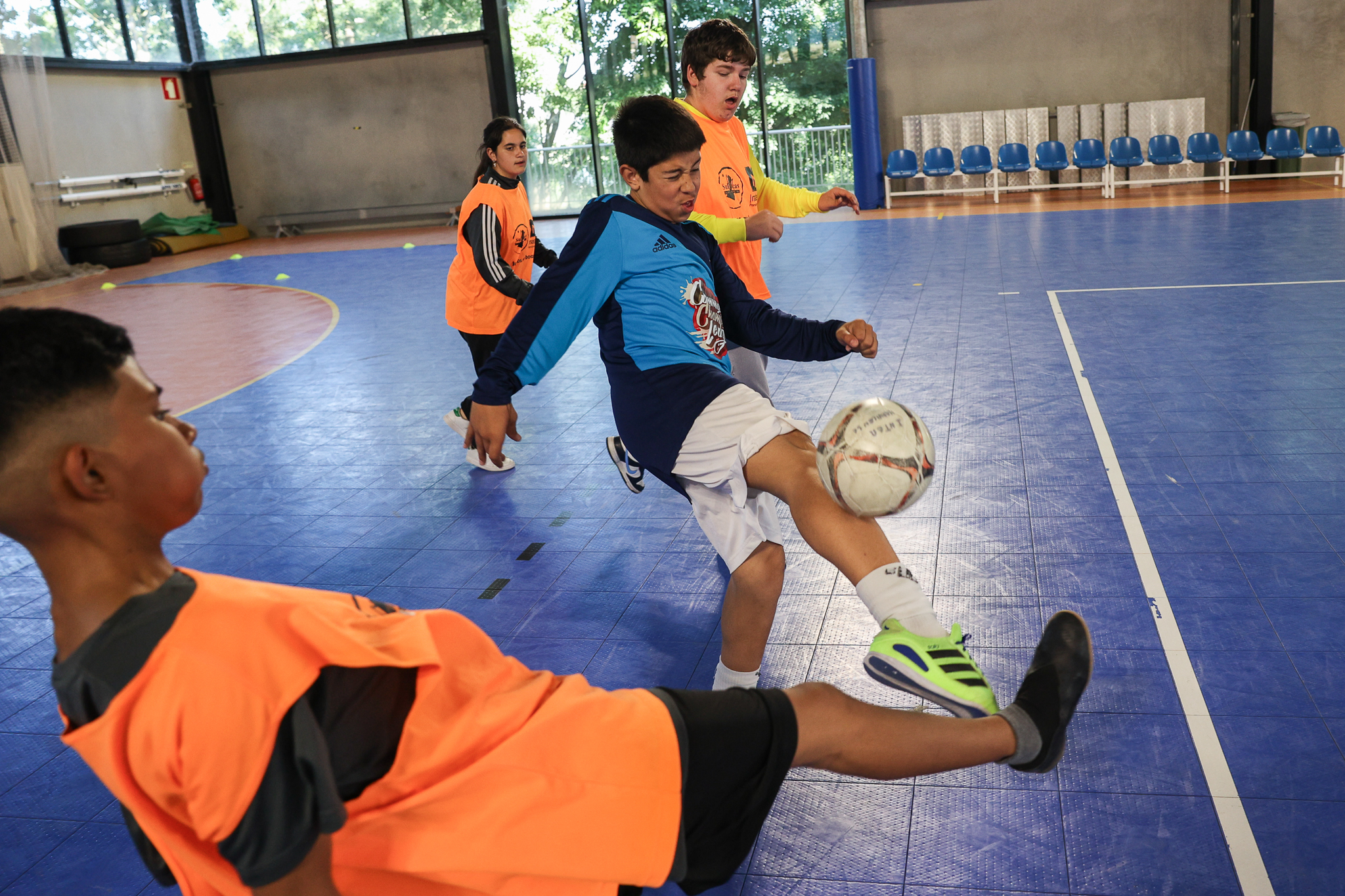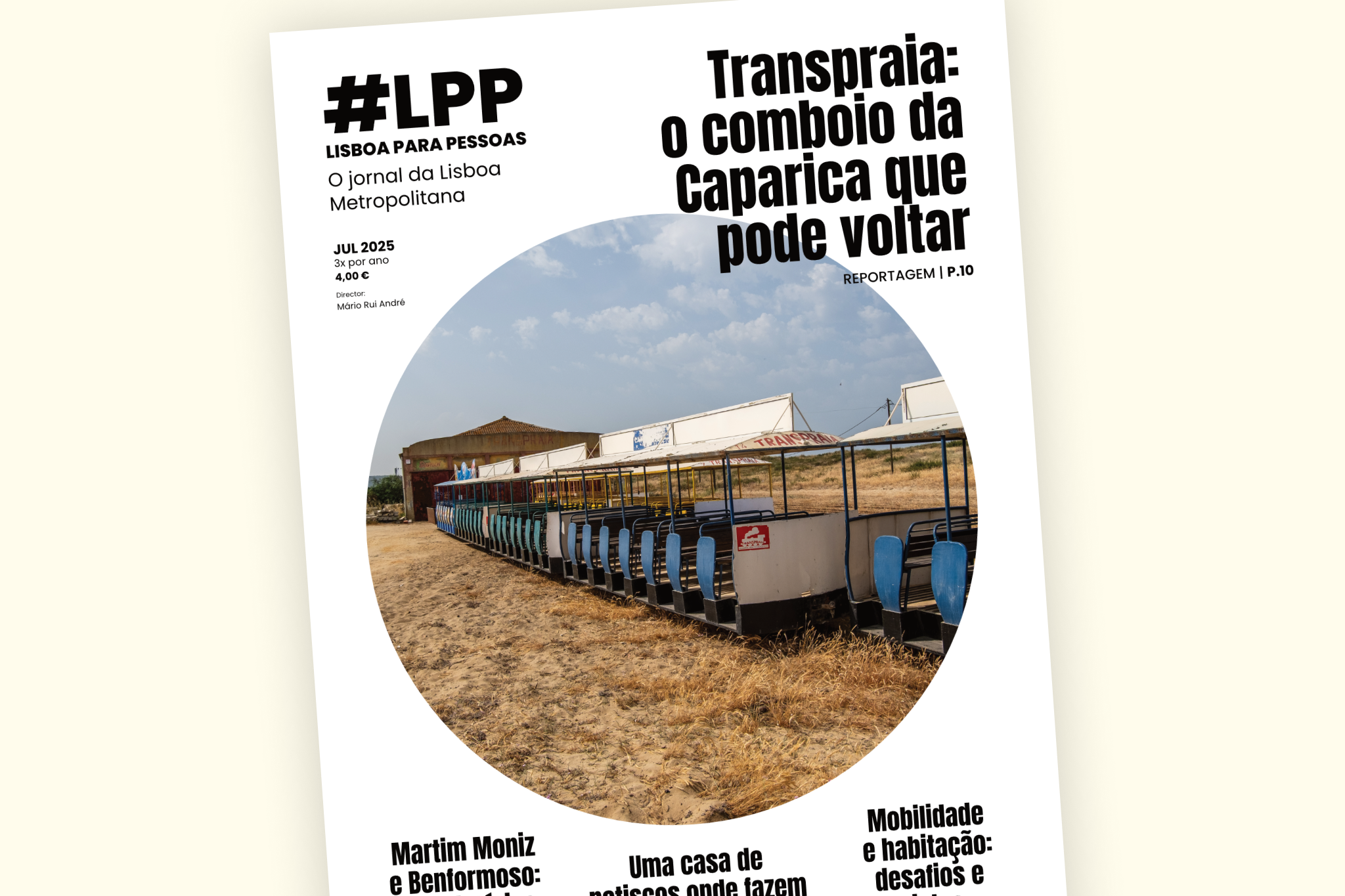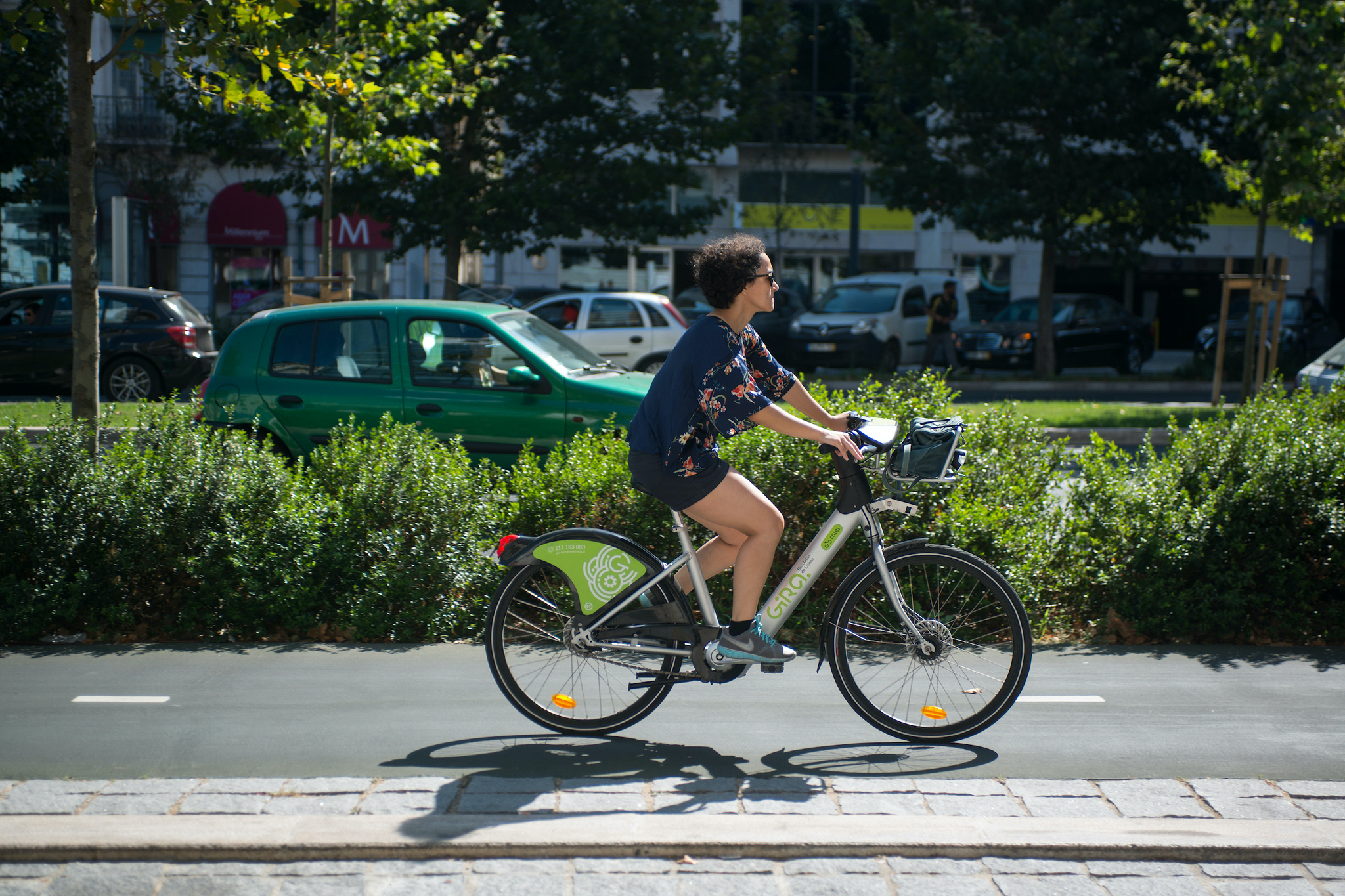
This crisis is the time for us to ask questions with a depth that it deserves. What have we done wrong for decades and don't want to do anymore? How can we take advantage of this crisis to make transformative decisions, and start doing what the public health and sustainability of Lisboners and the planet demand of us?
Active modes of travel bring enormous social and public health benefits. Their use during the COVID-19 pandemic is safe and does not increase the risk of infection for users or other people in public spaces, as long as the recommendations of the Directorate-General for Health are followed.
Data from the scientific literature indicates that air pollution, which in urban areas is mainly caused by the use of motorized transport, is a factor in major risk for increased morbidity and mortality from SARS-CoV-2 coronavirus infection. Recent research also suggests the hypothesis that pollution particles may serve as a vector for the virus and is one of the ways it can reach greater distances, hover in the air for longer and contaminate more people.
A recent study indicated that a small increase in long-term exposure to fine solid particles, PM2.5leads to a large increase in the COVID-19 mortality rate, the magnitude of this increase being 20 times higher than that observed for PM2.5 and all causes of mortality. The authors of this study state that the results highlight the the importance of containing air pollution to protect human health during and after the COVID-19 crisis.
We know that air pollution peaks in Lisbon increase the risk of mortality, especially in the elderly population. Lisbon has a high proportion of elderly people and is the EU capital with the most elderly people, according to Eurostat. We also know that they cause the number of children with respiratory problems to skyrocket. These studies have made it clear that there is a link between the area of residence of children with respiratory problems seen in the emergency room and the areas of the city with higher levels of particulates. The data shows that, following pollution peaks (three to five days later), there is a significant increase in visits to the pediatric emergency room at Hospital D. Estefânia for respiratory infections. This is in addition to the fact that these illnesses usually account for a third of all visits to the unit, especially acute infections, asthma and pneumonia.
The bicycle plays an important role in maintaining the resilience of transport systems, providing distribution and delivery services, replacing car journeys and helping to relieve congestion on public transport. We congratulate CML/EMEL for deciding to keep the GIRA bike-sharing system running. We are also pleased to see that the system is now free for Health Professionals. But the city also depends on the many people who continue to work to put bread on our tables, cleaning our streets, working in the supply chains for essential products and basic necessities, among others, people who ensure that in this period of crisis and state of emergency our society does not collapse. We therefore call for the GIRA system to be free for all those who comply with the rules of behavior stipulated in the Government Decree regulating the application of the state of emergency. If we want to change our behavior, now is the time to do it!
However, we are surprised that EMEL (which depends on the CML) has announced free parking in Lisbon at the same time as CARRIS (which also depends on the CML) inconsistently announces that, although it is not necessary to validate the transport ticket, users must present a valid ticket to use public transport. This type of measure on the part of CML directly and indirectly encourages the use of cars during the pandemic crisis. It is therefore necessary to maintain prudent individual and community behavior, supported by public policies that are consistent with public health standards and that encourage a change in mobility behavior that until recently was based on individual motorized means.
With this in mind, CML should consider implementing temporary emergency infrastructures (sanitary corridors) in order to guarantee greater safety for those who opt for active modes of travel, such as creating cycle paths, widening sidewalks, closing streets or roads to car traffic, following the examples of what many cities around the world have been doing in this period of crisis and the recommendations of hundreds of experts in the fields of public health e mobility. Not only will we be guaranteeing safe distancing for those on foot or by bicycle, by increasing the available circulation space, but we will also be promoting a reduction in road risk for these and all users of the public space.
MUBi recommends that CML launches a communication campaign calling on citizens to refrain from risky behavior when driving motor vehicles, and to increase and take steps with the competent authorities to reduce risky behavior. If excessive speeds were already too frequent in the city, with the reduction in the number of vehicles speeds have increased even more. If parking on the sidewalk was already a serious problem, now it's more pressing when pedestrians need more space to walk.
Likewise, if creating cycle paths on or above the sidewalk has always been a technical and strategic mistake, now and in the future it is even more of an unacceptable solution that must be urgently corrected. CML should start considering properly separated and larger sidewalks and cycle paths in its projects - the proliferation of new micromobility vehicles, cargo bikes and the need for physical distancing demand it.
The Municipality of Lisbon has an important responsibility in guaranteeing citizens a safe and healthy option for their necessary journeys.
In this sense, MUBi suggests that CML:
- On urban roads with more than one traffic lane in each direction, proceed to temporary or permanent reduction in the number of lanesin order to promote motorized traffic calming and consequently reduce road risk for everyone (axes such as Avenida de Roma, Avenida Almirante Reis, Avenida 24 de Julho, Avenida da Índia, Avenida de Berna, Avenida Lusíada, Avenida Egas Moniz and Avenida Gago Coutinho);
- Make the lanes freed up on these axes available for the use of active modes such as sanitary corridorsto ensure greater physical distancing for citizens on foot or by bicycle;
- The missing parts of the expanding Lisbon's cycling network are filled with temporary emergency cycle paths;
- Sections of cycle path wrongly placed on the sidewalk are, as part of the emergency measures, moved to the road space;
- Appeal to citizens that, in the case of essential and necessary journeys, they do so, whenever they can, by bicycle or on foot;
- Reduce the maximum speed limit in the city to 30 km/hwith the exception of level 1 roads;
- Make GIRA temporarily free for all users;
- Try agreements with private micromobility operators so that there are more advantageous conditions for using their services and increase the number of alternatives to the use of private cars;
- Monitor the effect of the temporary measures described above and use this data to support more permanent measures to transform the public space of the Municipality of Lisbon in favor of active modes, citizens and air quality.
We would like to remind you that the government has come to consider bicycle repair and maintenance services essential, in order to meet the needs of citizens who choose this mode of transport for the journeys envisaged in the Government decree regulating the application of the state of emergency.
MUBi hopes that these proposals for Lisbon can complement the continuation of the good work and help safeguard everyone's health in the short and long term. We are, as always, on hand to help and to meet to detail and operationalize these proposals.

